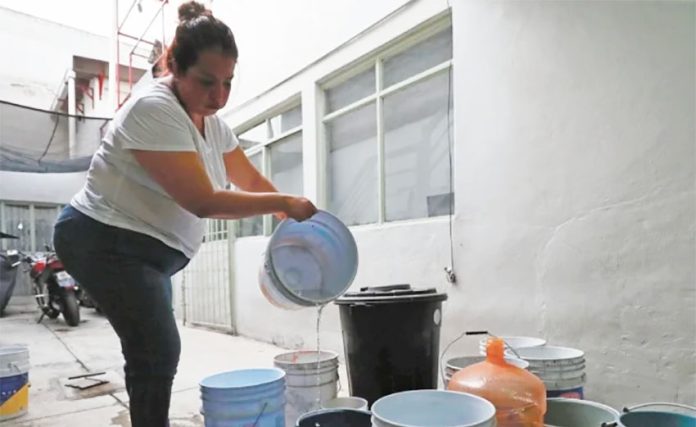Health authorities say that washing one’s hands is one of the most effective ways to avoid contracting and spreading Covid-19, but the measure isn’t as simple as turning on the faucet for the one-third of Mexican households that lack daily access to water.
In Mexico, 10.5 million households do not have daily access to potable water for cleaning and drinking, and human rights experts say that this shortfall poses one of the biggest challenges to combatting the spread of the novel coronavirus.
The data published by the federal statistics agency Inegi comes as a warning after the United Nations (UN) said last week that the fight against the disease has little chance of success if people aren’t guaranteed access to clean water to wash their hands.
The data reveal that 25% of households receive water only “every now and then,” while over 7% have no access at all to water in the home and must carry or otherwise transport it from external sources.
“We were able to observe that 68% of households — 22,428,142 — receive water [consistently], while 25% — 8,411,920 — obtain it every three days, one or two times a week or every now and then,” reported the agency.
“… 7% — 2,085,208 — do not have [access to water in the home] and get it by carrying it from another home, a public tap, wells, rivers, ditches, lakes, lagoons or from tankers,” it said.
The UN’s announcement of the importance of handwashing to containing the spread of Covid-19 was accompanied by a plea to world governments to guarantee sufficient access to clean water to their most vulnerable populations.
“The fight against the pandemic has few possibilities for success if personal hygiene, the principal measure for preventing contagion, is not within reach of those who do not have access to potable water services,” said the organization.
The UN’s Human Rights Council said that limited access will make it more likely that the virus will spread among vulnerable populations with limited resources.
“Governments should apply measures to break this cycle,” said human rights specialists on the council.
The social development agency Coneval said that in Mexico, rural and indigenous communities will be the most affected by the situation.
“Indigenous communities have the least coverage within the potable water infrastructure,” said Coneval, citing different but similar data to Inegi about water access.
Amnesty International Mexico’s executive director, Tania Reneaum Panszi, told the newspaper El Universal that the pandemic is going to affect those with limited resources much differently than those of other social classes.
“Access to [water] will be one of the biggest challenges [during the pandemic]. … There are people in this country who will not be able to wash their hands. The inequality is going to be made completely visible,” she said.
She said that inequality will be seen in people whose economic situations oblige them to go to work to survive and people without access to social security and urged both the Mexican government and the private sector to take measures to protect vulnerable populations.
“It is recommended that people stay home, but this is a privilege of class. It can be done with stable working conditions, with social security and when the employer is willing,” she said.
Source: El Universal (sp)
